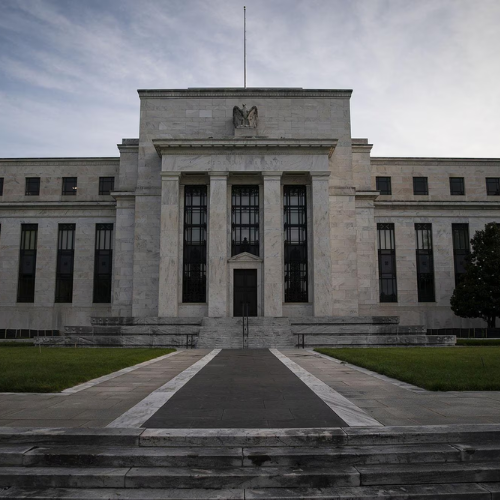John Harold Rogers, a former senior advisor to the Federal Reserve (Fed) has been arrested and charged with a serious crime: conspiring to steal sensitive information from the Federal Reserve and give it to China. This case has shocked many because the Federal Reserve is one of the most important institutions in the United States, and its decisions affect global markets. The advisor, who had access to top-secret economic data, allegedly used that power for personal and foreign gain.
The Crime: Economic Espionage and Insider Trading
John Harold Rogers, the former advisor, worked in the international finance division of the Federal Reserve from 2010 until 2021. During this time, he gained access to highly confidential information about U.S. economic policies and decisions. This included sensitive data about changes in interest rates, which could dramatically impact the stock market, bonds, and the entire economy. Rogers is accused of sharing this classified information with his co-conspirators in China.
The conspiracy allegedly involved Rogers passing on trade secrets that would give China an advantage in its financial dealings. With this information, China could make better decisions about buying or selling U.S. bonds and securities, much like insider trading. If someone knows something about the economy before it’s publicly announced, they can use that knowledge to make money, which is exactly what Rogers is accused of doing. The information he allegedly shared could have helped China to manipulate U.S. markets, which would be illegal and harmful to the American economy.
China’s Espionage Tactics Exposed: Targeting Taiwan’s Retired Defenders
How the Scheme Worked
Rogers is accused of receiving help from two individuals linked to China’s intelligence and security services. These individuals allegedly pretended to be graduate students in China but were, in fact, working for the Chinese government. In return for giving Rogers the trade secrets, they offered him gifts, paid for his vacation, and covered his travel expenses. Rogers even visited China, where he worked as a part-time professor at a university.
During these visits, Rogers allegedly met with his co-conspirators in hotel rooms, where they discussed and exchanged confidential information. He used his personal email to send this sensitive data, which was against the rules of the Federal Reserve. He also printed out some of the information before his trips to China, which he then handed over in person. This was a clear violation of the rules meant to protect confidential government information.
Rogers’ actions could have put U.S. economic security at risk, as the information he shared was highly valuable. For example, the Federal Reserve’s decisions about interest rates play a big role in the economy. These decisions influence how much money people can borrow, how much they will pay for loans, and how businesses plan for the future. If foreign governments can get this information early, they can make decisions that could harm the U.S. economy.
Shocking Espionage by Ex-Exployees of Samsung; Core Tech Stolen in High-Stakes China Plot
The Investigation and Charges Against Rogers
The Federal Bureau of Investigation (FBI) began investigating Rogers after it was discovered that he had lied about accessing and passing along sensitive information. In 2020, Rogers was questioned by the Fed’s internal watchdog, and he allegedly gave false answers about his connections to China and the information he had shared. This further raised suspicions about his actions.
Rogers was indicted in a federal court in Washington, D.C., where he faces serious charges, including conspiracy to commit economic espionage and making false statements. If convicted of the espionage charge, Rogers could face up to 15 years in prison. His arrest came on the same day that the U.S. government announced new tariffs on China, further highlighting the tension between the two countries.
Rogers worked for the Federal Reserve for over a decade, and during this time, he gained the trust of the organization. However, the charges against him suggest that he betrayed that trust for his own gain. His actions may have violated not just U.S. law but also the trust of the American people, who rely on the Federal Reserve to make decisions that help the economy remain stable and fair.
The case against Rogers has drawn attention to the risks of economic espionage and the importance of protecting sensitive financial information. As the investigation continues, it will reveal more about how much harm his actions could have caused and what consequences await those who attempt to steal secrets for foreign governments.


